MAP Website en Español haga clic aqui FEATURED STORY
Maybe world leaders are finally reading the writing on the wall?
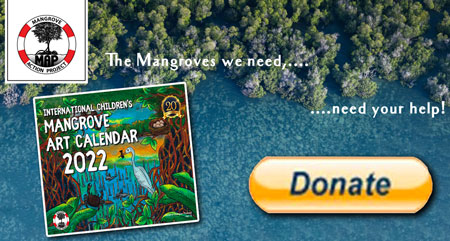
USA – Maybe they finally understand that the recent frightening weather, massive forest fires, droughts and floods are not just chance occurrences but due to our planet-level experiment of increasing CO2 levels from the pre-industrial 280ppm to 415ppm today. There’s no argument about these numbers or the greenhouse gas effect – it’s just straight physics. We can debate the link between CO2 levels and climate change. Or we can take practical action now. Please support MAP to do what the world should be doing, climate change or not – conserving existing mangroves and restoring degraded forests, as fast as possible. MAP is blessed by having a passionate, experienced, highly qualified and loyal team. We need funding to run more capacity-building and outreach programs, and advocate for mangroves at conferences and meetings such as COP26. You can help us to increase MAP’s impact by donating to MAP now. For donations of $35 or more, we will send you our beautiful 2022 Children’s Mangrove Art Calendar to show our appreciation. READ MORE  AFRICA
Mangrove-workers killed in Nigeria southern oil region

NIGERIA – Gunmen killed two Nigerian contractors working for a local subsidiary of Italy’s ENI and a security officer in an attack in Nigeria’s oil-producing Niger Delta region, a security official and the company said on Monday. Nigeria struggled with violence in its Niger Delta until a 2009 amnesty deal with militants mostly stopped attacks on oil installations and kidnappings. But violence still occurs and pirates and criminal gangs operate in the region, targeting ships offshore for kidnapping raids on their crews. Gunmen killed two workers with ENI subsidiary Nigerian Agip Oil Company and an official from the Nigerian Security and Civil Defence Corps (NSCDC) on Sunday in the oil-producing state of Bayelsa, local NSCDC spokesman Ogbere Solomon said. In a statement, ENI said the contractors were working on a mangrove restoration project with their security detail when they were attacked by an armed group. It said three people were killed and two injured. The project was to restore mangroves damaged by illegal refineries and spills from sabotage to oil installations in the area, it said. READ MORE Nigerian wellhead has spilled 2 mln barrels of oil and gas, says senate
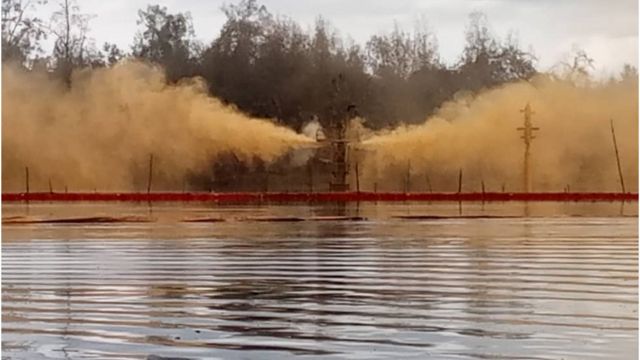
NIGERIA – A wellhead leak in Nigeria’s Bayelsa state has spewed two million barrels of oil and gas equivalent into the Delta creeks, the senate said. Nigerian oil firm Aiteo Eastern E&P reported the “extremely high order” leak from the Santa Barbara wellhead that it jointly owns with state oil company NNPC in early November. Weeks later, the wellhead was still violently spewing oil and gas. “Attempts to stop the continuous oil and gas spill by the operators had failed repeatedly for over one month running, wasting an estimated over 2 million barrels of hydrocarbon and gas,” a senate resolution stated, adding it showed “a disappointing appearance of technical incompetence in handling the incident on the part of Aiteo.” The resolution, put forward by Bayelsa Senator Biobarakuma Degi-Eremienyo, expressed concern over the impact of the spill on the mangrove forests, aquatic life and air and water in the region. READ MORE
How data and community can save Zanzibar’s mangroves

TANZANIA – Digital Earth Africa is helping Zanzibar fight the effects of climate change and protect the island’s precious mangrove habitat. The story is also part of a new documentary series, Climate Next. Zanzibar Island, located off the coast of Tanzania in East Africa, spans 950 square miles of lush vegetation and idyllic beaches that support its tourism-driven economy, in addition to the agricultural and fishing industries that help feed its 1.5 million inhabitants. Zanzibar is known for its most famous coastal ecosystem: mangrove forests. Mangroves are an incredibly hardy family of trees and shrubs-their deep, salt-tolerant roots thrive on coastlines and serve as natural barriers to storms and rising seas. In Zanzibar, the forests protect the island’s human residents and help fish hide from predators. But the mangroves also help protect the planet. READ MORE
Loans Keep Women Afloat As They Plant Fast-Vanishing Mangroves
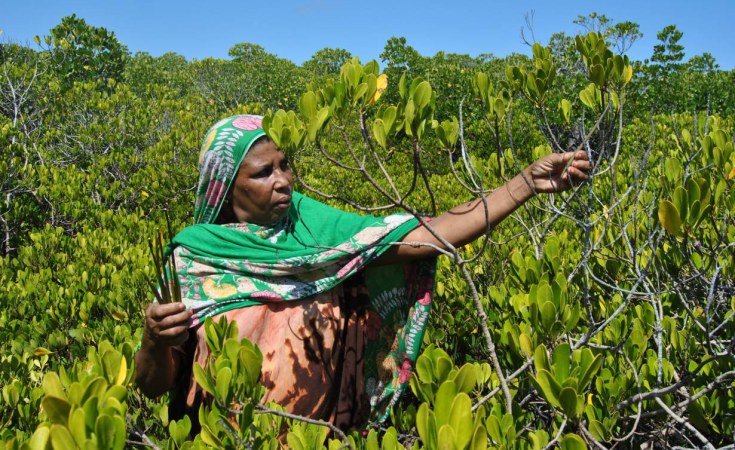
KENYA – When she was growing up, Tima Abudhi remembers watching her neighbours cut away at the mangrove forests around her village on Pate Island, on Kenya’s east coast, chopping down the coastal trees to build houses or to sell as timber. As the mangroves disappeared, so did the fish that live and breed among their roots – a disaster for the fishing village of Kizingitini, recalls the now 55-year-old mother of five. “We depended on fish for food. We ran out of food and money as well because we also trade in fish. Our children suffered the most,” she said. The threat to their livelihoods and homes motivated Abudhi and other women to start replanting the mangroves, often spending all day at the beach, taking time away from caring for their families and running their small businesses. Protecting the mangroves over the past few decades has taken a toll on their incomes, but they felt it was a matter of urgency, Abudhi said. READ MORE
AMERICAS
Ph.D. student fights for mangroves — not concrete seawalls — on Miami’s shorelines
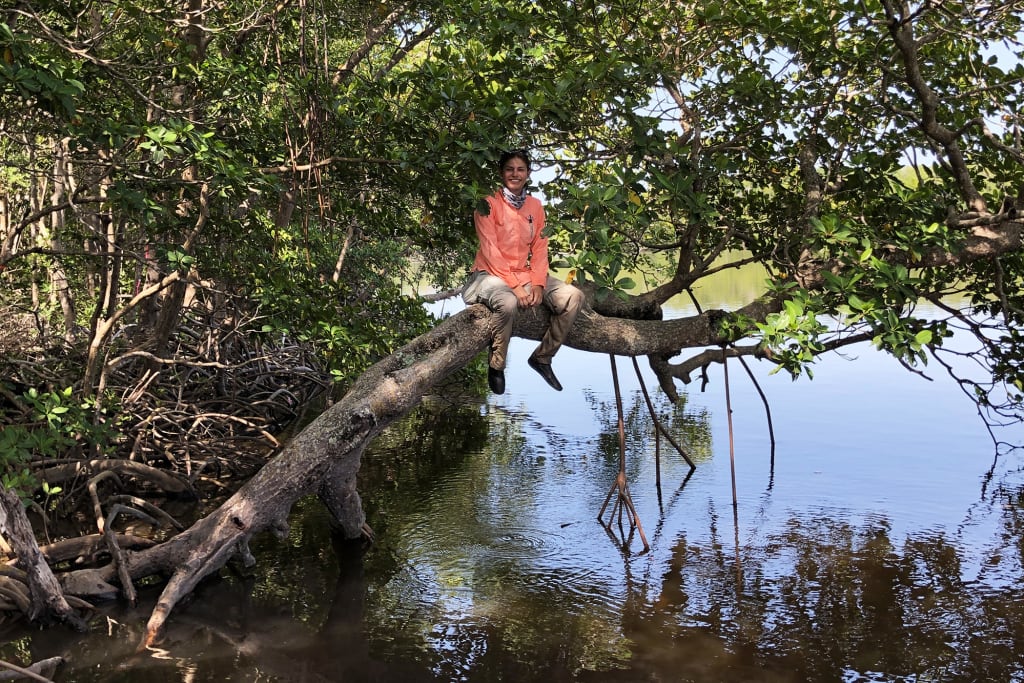
USA – Miami’s future could be one of enormous concrete seawalls stretching along the coast. Or something a little different — where mangroves become the type of infrastructure that really protects the city. Marbelys Garriga is fighting for a future where coastal urban landscape and design is dominated by living shorelines that benefit precious water resources, protect wildlife and help ensure humans can continue to live in coastal communities. The FIU Institute of Environment Ph.D. student is spearheading a project to gather quantifiable evidence on how traditional, more well-known shoreline infrastructure, such as seawalls or rip rap retaining walls, compare to natural forms, like mangroves and oysters. She’s focused on how these different types of infrastructures could impact an issue Miami continues to grapple with — water quality. READ MORE
Funders looking for bankable eco-projects

BVI – The British Virgin Islands (BVI) has much work to do if it is going to be able to create revenue generating projects in a blue carbon economy. This is according to Natural Resources Minister, Vincent Wheatley, who detailed some of the interactions he had with investors and other officials at the recent Joint Ministerial Council (JMC) held in Glasgow in the United Kingdom (UK). According to the minister, the BVI‘s mangroves and seagrass are two commodities which the territory has in abundance that are already garnering interest from potential investors. “They are very much interested in helping us turn those natural assets into a new economy that can generate income for the BVI,” Wheatley said. Wheatley said one of the topics he was able to make a presentation on, was mangroves. “When it comes to mitigation against climate change, they’ve discovered that mangroves are very efficient at removing carbon from the atmosphere. So mangrove has become kind of the new gold right now,” the minister said. READ MORE
ASIA
DOE pushes ‘mangrove sequestration’ to manage coal plants’ emissions

PHILIPPINES – To pare the country’s carbon emissions without compromising energy security, the Department of Energy (DOE) is examining the feasibility of “mangrove sequestration” so carbon emissions of coal plants can be offset or managed. Energy Secretary Alfonso G. Cusi noted that while the department gives premium on the country’s energy security needs, “we should actively explore the potential of out-of-the-box solutions that could reduce the harmful greenhouse gas emissions of coal plants.” The energy chief qualified that the Philippines is still at that stage wherein it cannot just totally eliminate coal plants because these generating assets serve a key component of the power mix – primarily in the need to satiate baseload electricity requirements; while renewables have yet to establish their foothold on reliability with the support of battery storage. As propounded by experts, mangroves are among the top carbon-capturing ecosystem on the planet – and they could sequester even higher scale of carbon dioxide (CO2) emissions than other biomes or the collection of flora and fauna occupying a major habitat on Earth. READ MORE
Indonesia prepares regulation to help fund mangrove restoration
/cloudfront-us-east-2.images.arcpublishing.com/reuters/CMDFBEDARBPMNEDZQ6M5YD25KQ.jpg)
INDONESIA – Indonesia is preparing regulation to help finance a programme of mangrove restoration work from sources outside of the state budget, as part of its carbon-neutrality efforts, a senior government official told Reuters recently. Indonesia launched a mangrove rehabilitation programme in March, aiming to restore 600,000 hectares (1.5 million acres) of degraded mangrove by 2024 to help absorb carbon emissions. Southeast Asia’s largest economy, which is also the world’s largest archipelago country, aims to reach carbon neutrality by 2060 or sooner. This year the government had aimed to restore 150,000 hectares of mangroves, but it has cut that goal to 33,000 hectares due to limited funding from the state budget as the government reallocates funds to cope with the coronavirus pandemic. READ MORE
Illegal mangrove logging surges in Indonesia’s Batam amid economic hardship

INDONESIA – Indonesian officials in Sumatra’s Riau Islands province have reported a 280% increase in seizures of mangrove wood from would-be smugglers this year, attributing the surge in illegal logging to economic hardship among local fishers. Provincial police said they had confiscated 21,186 mangrove logs so far in 2021, up from 7,647 logs in all of 2020. They said much of this mangrove wood came from the main island of Batam, with the logs destined for nearby Malaysia and Singapore. Police estimated the illegal sale of the logs would have deprived the state of 234 million rupiah ($16,300) in revenue. Logging of mangroves is illegal in Indonesia and punishable by up to five years in prison and 2.5 billion rupiah ($174,000) in fines. A resident who asked not to be identified said a growing number of fishermen had turned to cutting and selling mangrove trees to earn a living because of declining fish catches. Customs officials said the economic hardship wrought by the COVID-19 pandemic has also compounded the problem. READ MORE
Jakarta vows to maximize economic potential in coastal, island areas
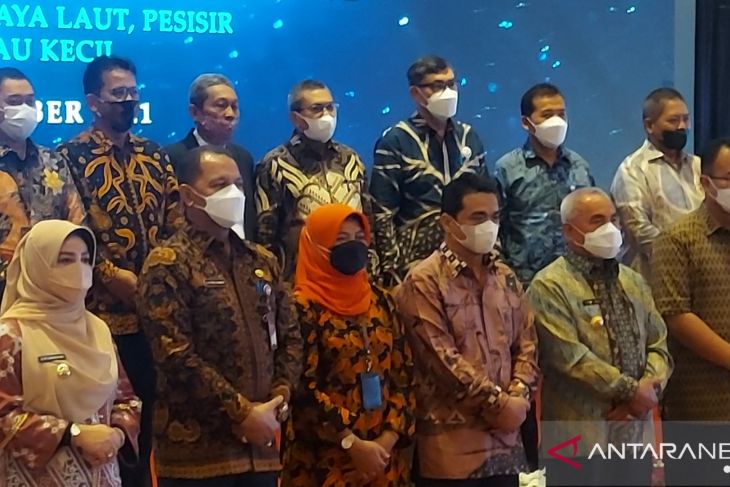
INDONESIA – The Jakarta administration remains resolute to maximizing the economic potential in coastal and island territories through the fishers’ community empowerment program, Jakarta Deputy Governor Ahmad Riza Patria stated. “We want the community, especially the fishers’ community in Jakarta, to obtain training, mentoring, and financial support through the Seribu Islands’ Jakpreneur. We will continue to provide help,” Patria affirmed. The deputy governor delivered the remarks at the 10th National Conference on Marine Resources, Coasts, and Small Islands Management at Putri Duyung Resort, Ancol Dreamland, North Jakarta, on Thursday. The enrichment program to boost the fishers’ capacity aims to enable Jakarta’s coasts, sea, and small islands to become the drivers of the blue economy for boosting social welfare through measurable governance. READ MORE Like this newsletter?
Pease consider donating to MAP to keep it going.
Giving could never be easier  | ACTION ALERTS BHP: Stop the Greenwash
There is no such thing as ‘green mining’. SIGN OUR PETITION Strengthen 60 Women Farmers in El Salvador
DONATE HERE Stop the East African Pipeline that threatens the planet #STOPEACOP – CLICK HERE Stop construction work on a private port In Defense of the Quilombo Boca Do Rio TAKE ACTION! Tell Sumitomo to stop building polluting coal power in Bangladesh! TAKE ACTION!
Like this newsletter? Pease consider donating to MAP to keep it going. Giving could never be easier 
MAP Website en Español
haga clic aqui
PRINTING EARLY NOV
ORDER YOUR 2022 MAP CHILDREN’S ART CALENDER HERE
TO RECEIVE BEFORE JAN 1
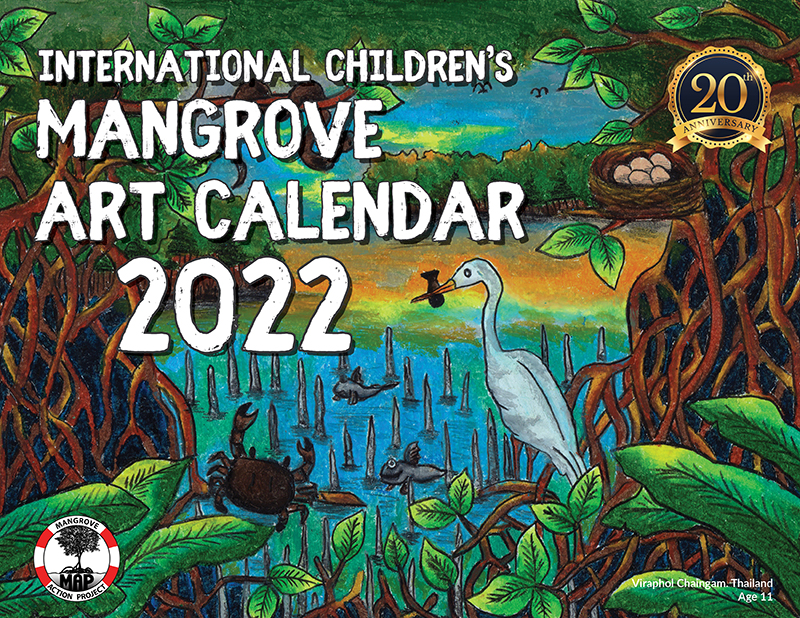 13 Year old Linda Li “Mangrove Adventure” from Kid Dream Art School

WATCH NOW 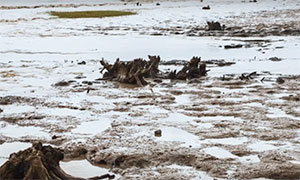
Restoring The Natural Mangrove Forest
Watch movie
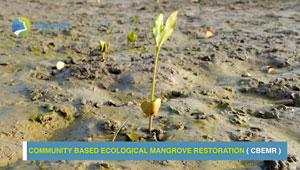
Community Based Ecological Mangrove Restoration in Rufiji Delta VIEW VIDEO
Video: Mangroves for the Future
View Here WANT TO GET INVOLVED?
Follow and Join MAP!    
Like this newsletter? Pease consider donating to MAP to keep it going. Giving could never be easier 

Interested in connecting or working with MAP? Check out our opportunities here 
MANGROVE ISSUES Want to learn more about mangroves?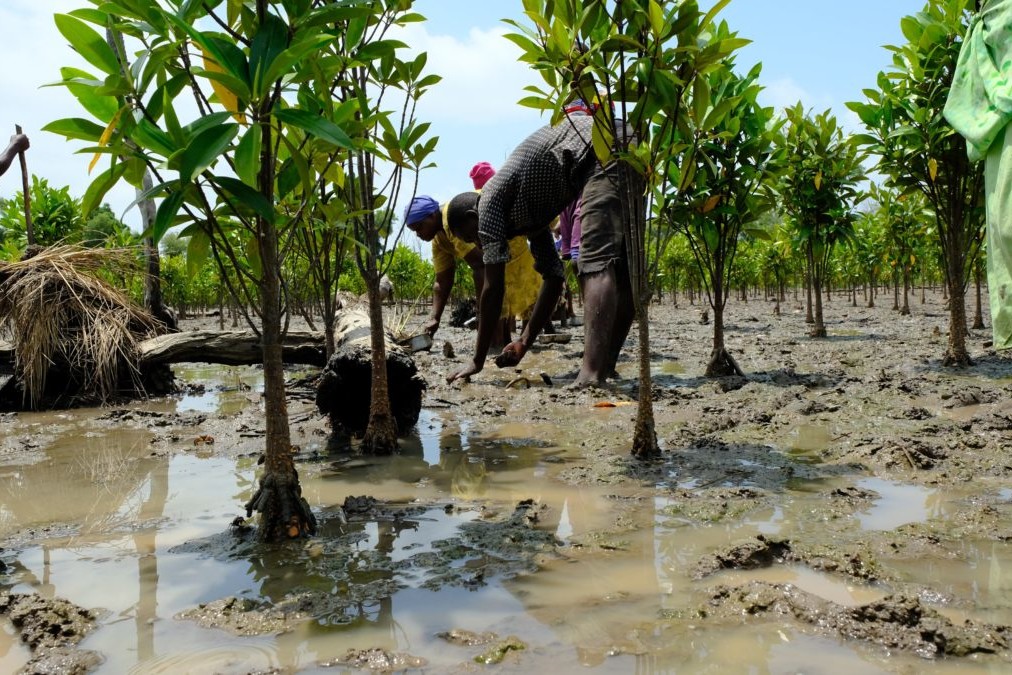
Our short presentation will give you a better understanding of the issues we are working to solve. WATCH PRESENTATION What is CBEMR? Download MAP’s 2 page CBEMR Information Sheet containing links to all MAP’s CBEMR resources – CLICK HERE View MAP’s uploaded Videos at
MAP Video Gallery Question Your Shrimp Consumer/Markets Campaign!
WATCH VIDEO Mangroves: Guidebook to Malaysia – Click Here SHARE MAP’S VISION
CLICK HERE to watch short introductory video. Together we can work “at the roots of the sea”. Our short documentary, Reducing the Risk of Disaster through Nature-Based Solutions : Mangroves 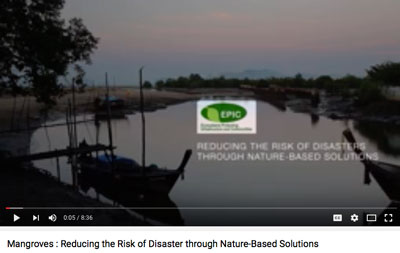
Marvellous Mangroves Curriculum The Marvellous Mangroves Curriculum begins with a simple philosophy – getting future generations to not only learn about, but understand the importance of mangrove forests. VISIT 
The award-winning Marvellous Mangroves (MM) curriculum educates children on the importance of mangroves and their ecological functions, teaching them about modern challenges and mechanisms for sustainability. VIEW VIDEO Marvellous Mangroves Curriculum in Bangladesh – WATCH VIDEO
MARVELLOUS MANGROVES IN BRAZIL
En Portuges 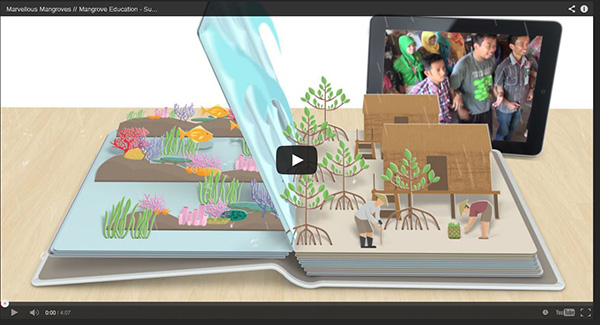
Marvellous Mangroves – A Curriculum-Based Teachers Guide.
Like this newsletter? Pease consider donating to MAP to keep it going. Giving could never be easier 
“Question Your Shrimp” Campaign Question Your Shrimp – is it really sustainable? Sign the Petition
Note to Our Readers: We strive to keep active links in our newsletter. However, due to circumstances beyond our control, occasionally links to stories may become broken. If you find a link to a story is not functioning, please cut and paste the headline into your browser search bar. In most cases you should be able to locate the original story.
Not yet a MAP News subscriber?
Click here to subscribe. 
|










/cloudfront-us-east-2.images.arcpublishing.com/reuters/CMDFBEDARBPMNEDZQ6M5YD25KQ.jpg)















